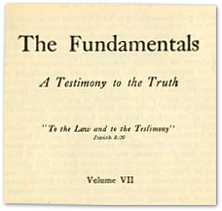The Synagogue and the Church: A Study of Their Common Backgrounds and Practices (Part 6)
 Reprinted with permission from As I See It, which is available free by writing to the editor at [email protected]. Read the series so far.
Reprinted with permission from As I See It, which is available free by writing to the editor at [email protected]. Read the series so far.
Chapter Five: The Public Service in the Synagogue and the Church (continued)
Public Bible Reading
Inasmuch as Bible instruction was an important function of both the synagogue and the church, it is no surprise to discover that the public reading of the Scriptures was among the regular activities of both. The value, even necessity, of the reading of Scriptures orally in both the synagogue and the church is further recognized when it is pointed out that considerable numbers of individuals in the first century were completely illiterate and could not read the sacred text for themselves at all. Besides this, the high cost of manuscript copies of the Bible made private possession and private reading of the Scriptures well beyond the reach of most individuals.
 Read
Read  Read
Read  (
(
Discussion